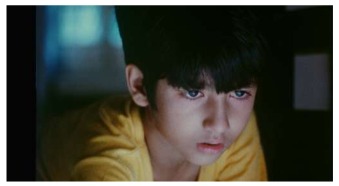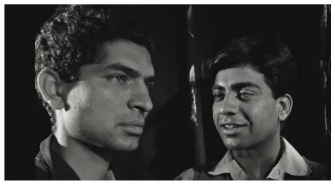The 18th edition of the Mumbai International Film Festival (MIFF) is set to offer cinephiles a remarkable opportunity to experience a selection of shorts, animation films, and documentaries from the collection of the National Film Development Corporation (NFDC) and the National Film Archive of India (NFAI). These films have been digitally restored under the National Film Heritage Mission, underscoring the rich cinematic heritage of India.
Among the highlights is “Pikoo,” directed by Satyajit Ray in 1980. This 26-minute Bengali film is a cinematic adaptation of Ray’s short story Pikoor Diary. It captures a day in the life of young Pikoo as he navigates the complexities of his parents’ disintegrating relationship, poignantly portraying the innocence of his solitary world.

“The Art of Animation,” directed by B. R. Shendge in 1981, offers an insightful look into the painstaking process of animation. This 10-minute Hindi film showcases the journey from static images on paper to captivating moving images.
“Fear,” directed by Ritwik Ghatak in 1965, is a rarely-seen short film set in the future and created as an exercise for acting students at the Film and Television Institute of India. This 16-minute Hindi film is set in a garrison town facing an impending nuclear attack.

“The Story of Tiblu,” directed by Santosh Sivan in 1988, follows the inspiring journey of a nine-year-old girl in the remote village of Idu in Arunachal Pradesh. This 84-minute Hindi film depicts Tiblu’s love for education and its transformative impact on her community.
“Around India with a Movie Camera,” directed by Sandhya Suri in 2018, uses archival images to explore the shared histories of the British and Indian subcontinent before independence, featuring personalities like Sabu and Gandhi. This 86-minute English film offers a poetic and compelling narrative.
E9GS.jpeg)
“Where Time Stands Still,” directed by Deepak Haldankar in 1978, offers an anthropological portrait of the Adivasis in Abhujmad and neighboring areas of the Bastar region. This 11-minute Hindi film highlights their self-reliant agricultural practices, social customs, and community engagement.
67Q5.jpeg)
MIFF 2024 promises an enriching cinematic experience, bringing to light restored gems that span various themes and eras of Indian filmmaking. These screenings underscore the festival’s dedication to preserving and celebrating India’s cinematic heritage.
About NFDC-NFAI
The NFDC-NFAI, headquartered in Pune, is responsible for collecting, cataloguing, and preserving films from India and around the world. With a vast collection of over 30,000 film titles, including silent classics, documentaries, feature films, and short films, NFAI serves as the custodian of India’s cinematic history.
NFAI’s commitment to film preservation is exemplified by its state-of-the-art film storage facilities, temperature-controlled vaults, and expert staff who are dedicated to the meticulous care of film reels.
National Film Heritage Mission
The National Film Heritage Mission, launched in 2015, is a government initiative under the aegis of the Ministry of Information and Broadcasting. Its primary objective is to preserve, conserve, and digitize India’s vast cinematic heritage. The NFHM is a massive undertaking that encompasses various aspects of film preservation, including the restoration of deteriorating films, digitization of film prints, documentation, and preventive conservation, all of which is carried out at the state-of-the-art restoration and digitization facilities at NFDC-NFAI’s Pune campus.
The NFDC-NFAI has been working on the restorations for the past several months where each and every frame is being restored meticulously. The objective is to preserve our cinematic history and the way we watch the content today, that is in 4K resolution.
 Matribhumi Samachar English
Matribhumi Samachar English


